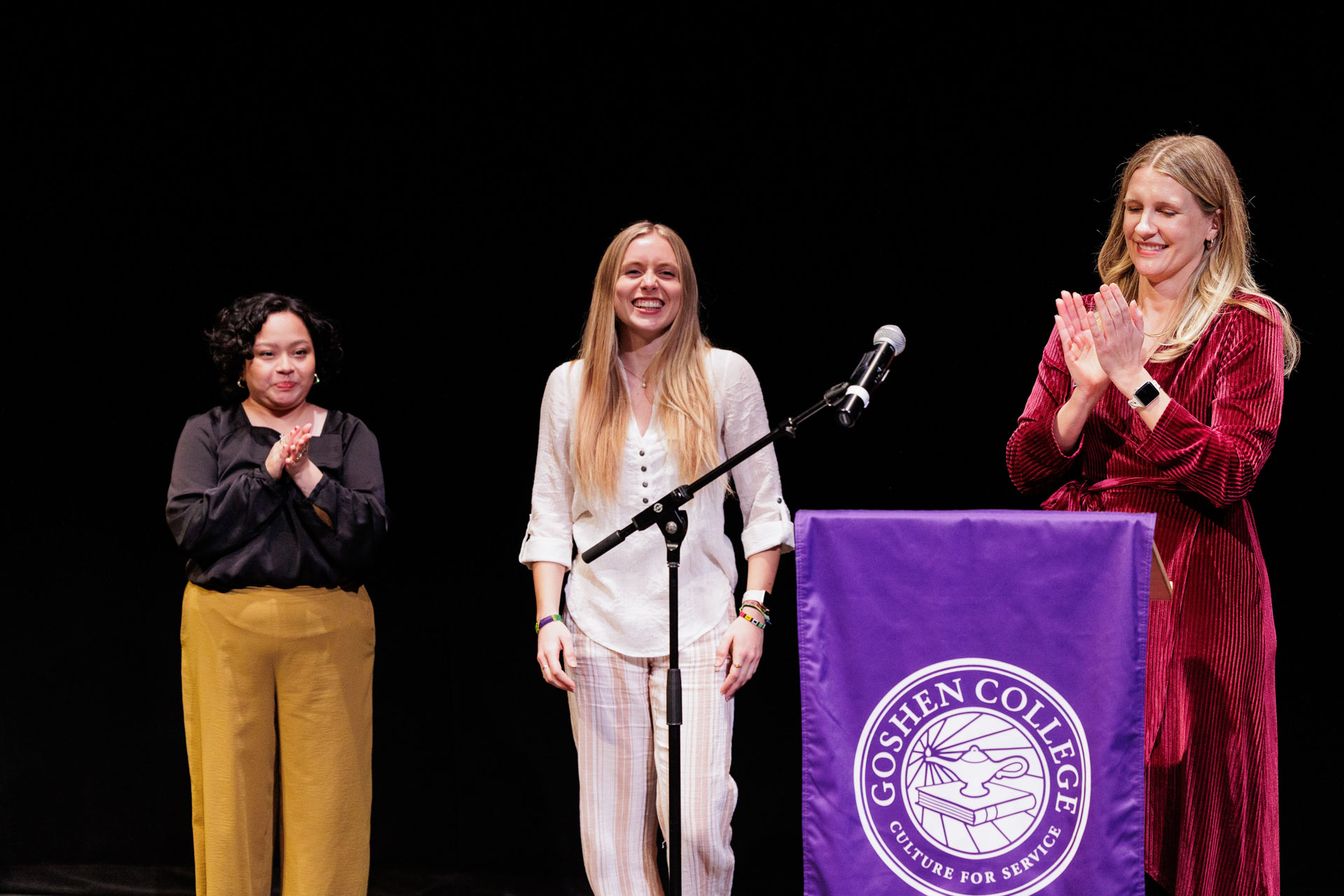Annika Alderfer Fisher began her speech by painting a vivid picture of her grandparents, who possessed a unique talent for fixing things. Instead of succumbing to the throwaway culture of their time, they were dedicated to repairing items that others had discarded.
From clocks to furniture, they breathed new life into forgotten treasures, demonstrating a profound respect for craftsmanship and a disdain for mindless consumption.Alderfer Fisher urged the audience to pause and reconsider their choices, then took the audience on her journey to Tanzania, where the stark realities of overconsumption were laid bare. Against the backdrop of a history marred by colonial exploitation and systemic inequality, she was confronted with the harsh truth: While some parts of the world bear the brunt of environmental degradation, others remain blissfully unaware of their complicity in the global crisis.
Through personal anecdotes and interesting statistics, such as the fact that Black Americans are nearly three times more likely to become vegan than white Americans, Alderfer Fisher challenged the audience to confront their privilege and acknowledge the consequences of their actions.
By drawing attention to the disproportionate carbon footprint of developed nations like the U.S. compared to countries like Tanzania, she highlighted the urgent need for individual accountability and collective action.
But amidst the sobering realities, the speech offered a glimmer of hope — a pathway towards change. By making conscious choices in our daily lives, whether it’s adopting a plant-based diet or opting for sustainable transportation, Alderfer Fisher argued that we can begin to dismantle the systems of inequality and environmental degradation that perpetuate global injustices.
When asked how to best begin making a difference, Alderfer Fisher shared, “Carpool, buy local, and buy less … when you need to buy new clothes, thrift them, or buy local … When possible, choose foods that are local and in season. Try out ‘meatless Mondays’ or have one meal a day that doesn’t have any meat.”
Ultimately, the speech served as a rallying cry for a paradigm shift — a shift away from mindless consumption towards mindful stewardship of the planet and its resources.
“Even though our society is conditioned to do whatever we want, we need to be willing to be inconvenienced,” Alderfer Fisher said. “People with privilege and money need to be the first ones to reduce our consumption, because we have more discretion over our lifestyle choices.”


